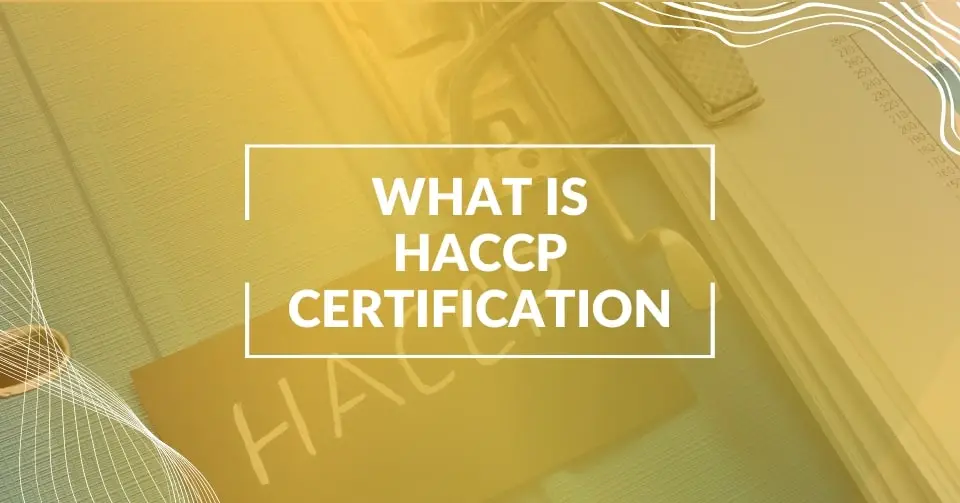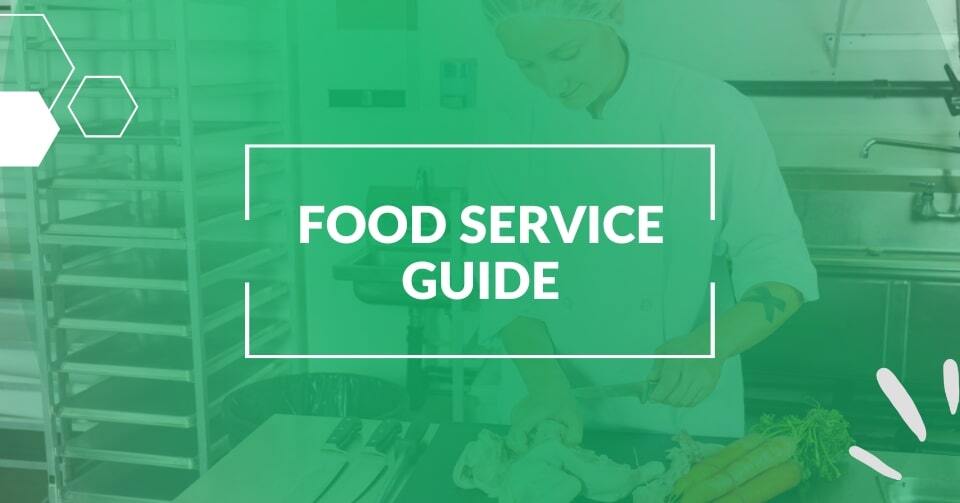HACCP, or Hazard Analysis and Critical Control Points, is a globally recognized food safety management system designed to identify, evaluate, and control hazards at every stage of the food production process. These hazards can be biological, chemical, or physical in nature, and the goal of HACCP is to prevent them from compromising food safety before they occur.
HACCP certification is an official validation that your facility has successfully developed and implemented a compliant HACCP plan. It confirms that your operations meet international food safety standards and that you are actively committed to protecting public health. Certification is often required by regulatory agencies, buyers, and international markets to prove that your company maintains a systematic, preventive approach to food safety.
In this article, you’ll learn who needs HACCP certification, why it matters, how to get certified, and what steps you need to take to ensure ongoing compliance.
What Are the Advantages of HACCP Certification?
Obtaining a HACCP certificate offers more than regulatory peace of mind; it’s a strategic advantage in a competitive food market.
While HACCP may not be legally mandatory in every country, it is often required to access international markets or maintain your position in heavily regulated regions like the USA, Australia, China, and the EU. In fact, most globally recognized third-party food safety certifications (like SQF, BRCGS, and FSSC 22000) include HACCP as a foundational requirement.
Key benefits of HACCP certification include:
- Greater market access: Meet export requirements and open doors to partnerships with major buyers.
- Stronger consumer trust: Show your customers you prioritize food safety and quality.
- Investor confidence: Demonstrate to potential partners or stakeholders that your processes are reliable and well-managed.
- Competitive edge: Stand out from uncertified competitors who lack formal food safety controls.
In short, getting HACCP certified isn’t just about compliance; it’s a proactive step toward long-term success in the food industry.
Prepare for Your HACCP Audit With Confidence
Gap analysis, training, implementation support. We cover it all.
Who Needs HACCP Certification?
You should use a HACCP system if you are:
- A producer of food or food packaging
- A food retailer or distributor
- Restaurant or catering establishment
- Supplier of raw materials to food manufacturers or processing companies, etc.
Simply put, a HACCP certificate is required for any company that deals with food production, processing, and distribution. HACCP aims to ensure food safety throughout the whole supply chain.

Where Is HACCP Certification Required?
While HACCP certification may not be legally mandatory in every country, it’s often required in key global markets, and sometimes indirectly enforced through retailer or buyer expectations. Understanding where HACCP is needed can help your business stay compliant and competitive.
Here are some examples:
- United States: HACCP is mandatory for meat, poultry, seafood, and juice processors under USDA and FDA rules. It’s also a foundational element of FSMA’s Preventive Controls requirements.
- European Union: EU regulations require food businesses to implement HACCP-based procedures as part of Regulation (EC) No 852/2004.
- Canada: The Safe Food for Canadians Regulations (SFCR) mandate preventive control plans (PCPs), which are HACCP-based.
- Australia and New Zealand: HACCP is a legal requirement for many food sectors, particularly those exporting products.
- China: While not always mandated by law, HACCP certification is often required to gain access to the Chinese export market.
- Global Retailers: Major international buyers (e.g., Costco, Walmart, Whole Foods, Tesco) frequently require HACCP or GFSI-based certification from their suppliers—even in regions where it isn’t legally mandated.
In short, even when not strictly required by law, HACCP is often expected by regulators, buyers, or trading partners. Achieving certification ensures you won’t be left out of opportunities in regulated or export-focused supply chains.
How To Get HACCP Certification?
You must undergo the HACCP verification audit to get HACCP-certified. A food safety auditor can take a few hours to a few days to thoroughly verify whether your HACCP system successfully manages all the potential food safety hazards in your production process.
First of all, you should be aware of HACCP verification audit requirements. The audit aims to check if the company sticks to 7 HACCP principles:
- Hazard analysis
- CCP identification
- Establishing critical limits
- Monitoring procedures
- Corrective actions
- Verification procedures
- Record-keeping and documentation.
1. Consider HACCP training
Completing HACCP training is a great way to ace your HACCP plan certification. Having finished the courses, you will find it easier to comprehend the 7 HACCP principles, the certification peculiarities, etc.
The training will also draw your attention to the significance of the HACCP plan and teach you how to implement it in the company. There is an abundance of free and priced training courses, which can be done online or in person in any language you and your team need.
Being HACCP trained and certified will educate you more about food safety and prepare you for the audit.
2. Write and implement your HACCP plan, or have FoodReady write one for you.
A quality HACCP plan that can be easily implemented includes prerequisite programs like SSOPs (Sanitation Standard Operating Procedures) and current Good Manufacturing Practices (cGMP). These programs create the necessary conditions for safe food production. Prerequisite programs should be regularly monitored and documented.
Your HACCP logs, which record prompt and appropriate responses to food hazards, are vital to have on hand during the certification process. You have to prove that food safety is your top priority. Apart from that, you must have other well-organized food safety management systems in place.
Need help with your HACCP plan?
What if AI could build and customize your HACCP plan for you?
3. Gap analysis.
You must identify the weaknesses and improve them. You can do it independently, but it is preferable to involve an independent consultant so they can review everything from their perspective. FoodReady HACCP consultants can help you write your HACCP Plan and prepare for the audit. Check out our website to find out how we can assist you.
4. Choose an auditor.
You must ensure that the selected person is competent and has a license to conduct the audit. Then, you will be safe and know that the certification process will go smoothly. You can try searching for the auditor among Accredited Third-Party Certification Bodies.
5. The audit starts after you submit the documents.
Firstly, the auditor will verify if the actual situation at your facility corresponds to the records you provided. Then, the auditor will assess everything else, including the workers, facilities, documents, etc. At each stage, you will receive recommendations for improvement.
6. Complete the audit and get your certification document.
This will prove that you follow HACCP principles and that your business has a comprehensive food safety system, which means you are reliable and your products are safe. Remember to maintain your results, follow the updates, and strive to improve. Continuous improvement is crucial for the food industry.

What is the Difference Between HACCP Certification and HACCP Plan?
It may be confusing, but the HACCP plan differs from HACCP certification and does not guarantee a successful audit. However, this plan is a fundamental requirement for a certificate.
Also, if you pass other audits like GFSI, you must implement a HACCP plan.
Here’s how the two compare:
| Feature | HACCP Plan | HACCP Certification |
|---|---|---|
| Definition | A documented food safety system identifying hazards and control measures | A formal recognition awarded after a successful third-party audit |
| Purpose | Internal control and hazard management | External validation that your food safety system meets international standards |
| Required for Certification? | Yes | – |
| Issued By | Developed internally by your team or with consultants | Issued by an accredited certification body (CB) after an audit |
| Guarantees Certification? | No, it must be properly implemented and verified | Yes, if audit is passed and standards are maintained |
| Part of GFSI Schemes? | Required element | Certification proves compliance with schemes like BRCGS, SQF, FSSC 22000 |
Having a HACCP plan is a critical step, but to fully demonstrate compliance and gain access to new markets or major buyers, HACCP certification is what truly validates your efforts.
How To Make the HACCP Certification Process Easier?
Knowing more about HACCP certification is already a huge step forward. Still, we believe it is always an excellent idea to ask for assistance from a specialist who knows what they do so you don’t waste your resources on trial and error.
With FoodReady HACCP consultants, you will worry less about writing and implementing your HACCP and food safety plans. We will develop your complete food safety program.
Our FoodReady AI software is a convenient way to track details during audits and the regular working process.
To find out more, you can book a demo, and let us guide your through the certification process smoothly!
Now You Know More About HACCP Certification
Let’s summarize the main points from this article:
Hazard Analysis and Critical Control Points certification is a standard that will demonstrate your commitment to food safety. It will also bring many advantages to the organization, such as increased food safety and boosting business development.
If you are a food manufacturer, processor, vendor, or anyone involved in the food supply chain, think about a HACCP certification as an option to ensure food safety.
The HACCP audit will check whether your food production process supports the seven HACCP principles and if you implement the HACCP plan correctly. You should take a HACCP course, conduct a gap analysis, and make other steps to prepare for the audit.
Moreover, you can contact a specialist to help you prepare for the HACCP audit and get a certificate. FoodReady is here to help you and increase your chances of success!
FAQs
Usually, it takes several days. Time depends on factors like the company’s size, HACCP plan readiness, etc.
You can get HACCP certified online with FoodReady by having experts write and implement your plan, preparing you for audit success through customized support, consultations, and management tools.
The cost will depend on various factors. Firstly, different certification firms will offer their quotes. Also, aspects like the size of the company, your preparedness, training, the need for corrective actions, etc, influence the price a lot. It’s better to research the certification bodies you prefer and ask for a customized quote. FoodReady offers cost-effective software and consulting services to write and implement your HACCP plan and prepare for the audit.
No, HACCP cannot guarantee a 100% hazard-free environment. However, it can considerably lower the risk of hazards.
ISO is an expanded food safety program based on HACCP principles but also looks at business processes and structures.
Yes, HACCP certification is a smart investment. It demonstrates your commitment to food safety, enhances your credibility with buyers and regulators, opens access to new markets, and can protect your brand from costly food safety incidents. While there is effort and cost involved, the long-term benefits typically outweigh the initial investment.
Basic HACCP training is a course designed to help food industry professionals understand the core principles of the HACCP system. It covers the seven HACCP principles, how to conduct a hazard analysis, identify critical control points, and maintain food safety documentation. This training is often the first step toward building a compliant food safety program.
he 7 principles (sometimes referred to as “rules”) of HACCP are:
Conduct a hazard analysis
Identify critical control points (CCPs)
Establish critical limits for each CCP
Establish monitoring procedures
Establish corrective actions
Establish verification procedures
Establish record-keeping and documentation procedures
These principles form the foundation of a successful HACCP plan.
Most HACCP training courses range from 6 to 16 hours, depending on the format and depth of material. Some are completed in a single day, while others may be spread across several days or weeks for flexibility.
Yes, many HACCP training programs and certification support services, like FoodReady, are available online. Using digital tools, you can complete training, build your HACCP plan, consult with experts, and prepare for audits from anywhere.
HACCP training costs can vary widely.
Online self-paced courses: $100–$300
Instructor-led programs: $300–$800
Custom in-house training: Higher, depending on group size and location
FoodReady offers tailored training support as part of our consulting and software packages.
A HACCP course typically takes between 1 to 3 days to complete, depending on the provider and depth of the material. Some courses offer flexible schedules for busy teams or operators.
If your HACCP plan is already implemented and well-documented, the certification audit process may take a few days to a couple of weeks, depending on your facility size and complexity. Preparation time beforehand varies based on your current food safety systems.
A HACCP certificate proves that your business follows a systematic, preventive food safety system recognized internationally. It shows buyers, regulators, and consumers that your operations are built to identify and control food safety hazards, making you a trusted supplier.







